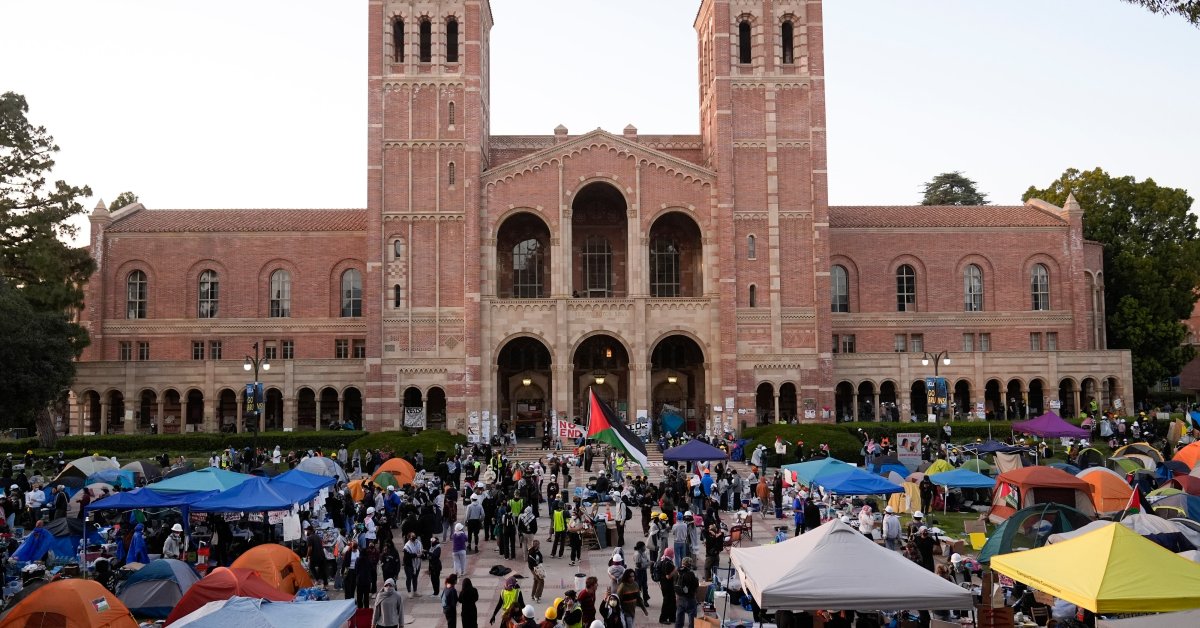WASHINGTON — House Republicans have summoned the leaders of Northwestern University and Rutgers University to testify about concessions they gave to pro-Palestinian protesters to end demonstrations on their campus.
The chancellor of the University of California, Los Angeles, also was scheduled to appear Thursday in the latest in a series of hearings by the House Committee on Education and the Workforce into how colleges have responded to the protests and allegations of antisemitism. Tensions over the Israel-Hamas war have been high on campuses since the fall and spiked in recent weeks with a wave of pro-Palestinian tent encampments that led to over 3,000 arrests nationwide.
After the first of those hearings in December, an outcry of criticism from donors, students and politicians led to the resignations of the presidents of Harvard and the University of Pennsylvania, who gave cautious, halting answers to questions about whether calls for the genocide of Jews would violate their schools’ conduct policies.
In April, the committee turned its attention to Columbia President Minouche Shafik, who took a more conciliatory approach to Republican-led questioning. Shafik’s disclosure of disciplinary details and concessions around faculty academic freedom upset students and professors at Columbia. Her testimony, and subsequent decision to call in police, escalated protests on campus that inspired students at other colleges to launch similar demonstrations.
Thursday’s hearing expands the scope of the committee’s inquiry for the first time to large, public universities, which are more strictly governed by First Amendment and free speech considerations. Earlier hearings largely focused on private, Ivy League colleges.
Originally, the presidents of Yale University and the University of Michigan were called to testify. But the committee shifted its attention to Northwestern and Rutgers after those colleges struck deals with pro-Palestinian protesters to limit or disband encampments.
Expected to testify Thursday are Michael Schill, the president of Northwestern; Gene Block, UCLA’s chancellor; and Jonathan Holloway, the president of Rutgers.
The concessions that Northwestern and Rutgers agreed to were limited in scope. Like some other colleges that reached agreements with protesters, they focused on expanding institutional support for Muslim and Arab students and scholars on campus.
At Northwestern, the administration agreed to re-establish an advisory committee on its investments that includes student, faculty and staff input. The university also agreed to answer questions about financial holdings including those with ties to Israel.
Rutgers agreed to meet with five student representatives to discuss the divestment request in exchange for the disbanding of the encampment. The university also stated it would not terminate its relationship with Tel Aviv University.
The committee’s chair, Rep. Virginia Foxx, R-N.C., criticized the schools for their decision to negotiate with protesters.
“The Committee has a clear message for mealy-mouthed, spineless college leaders: Congress will not tolerate your dereliction of your duty to your Jewish students,” she said in a statement. “No stone must go unturned while buildings are being defaced, campus greens are being captured, or graduations are being ruined.”
UCLA’s oversight of its campus protests has been under scrutiny since counter-demonstrators with Israeli flags attacked a pro-Palestinian encampment on campus. The counter-demonstrators threw traffic cones and released pepper spray in fighting that went on for hours before police stepped in, drawing criticism from Muslim students and political leaders and advocacy groups.
On Wednesday, the police chief at UCLA was reassigned “pending an examination of our security processes,” according to a statement from the school.




